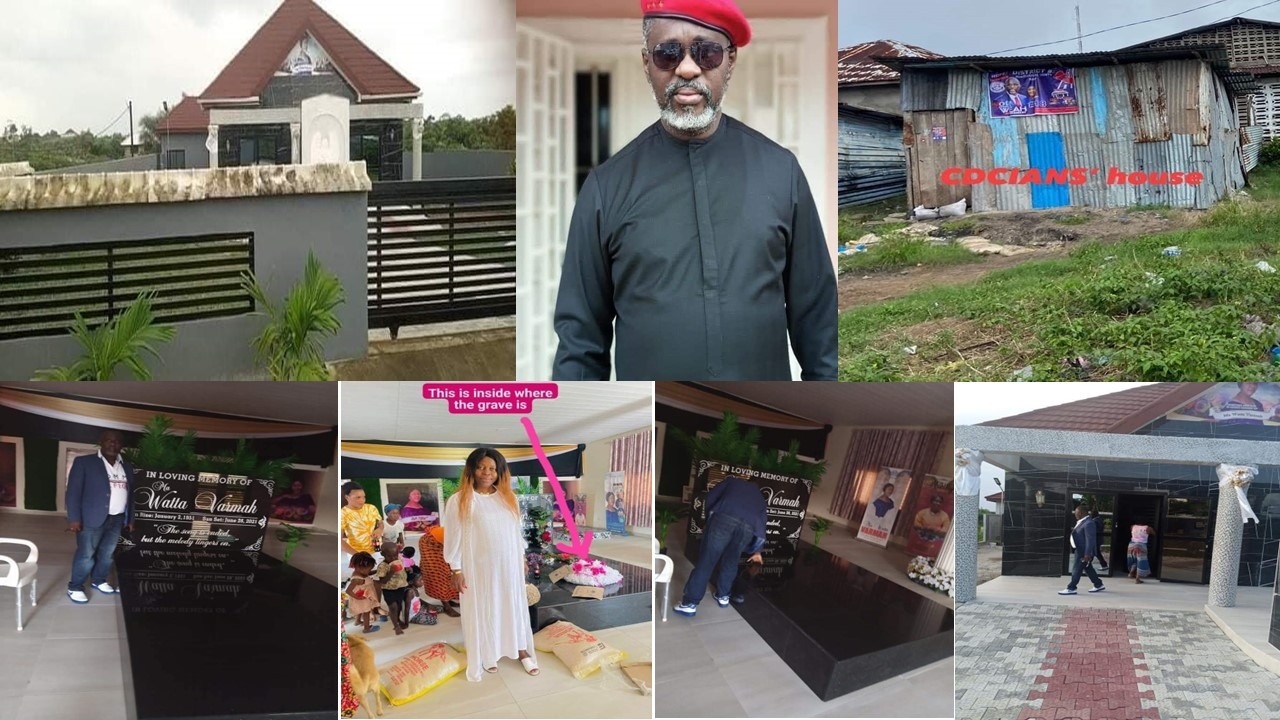In recent times, a growing wave of discontent has swept through Liberia as citizens demand a thorough audit of the Weah administration’s financial dealings. The stark contrast between the lavish spending on personal luxuries, exemplified by the extravagant tomb of Nathaniel McGill’s mother, and the impoverished lives of many CDCians has fueled the call for transparency and accountability.
One striking example that fueled public outrage is the reported $177,000 USD spent on the construction of Nathaniel McGill’s mother’s tomb. Not only does this exorbitant expenditure raise eyebrows, but the revelation that engineers from Ghana were brought in for its construction adds another layer to the controversy. Many argue that such funds could have been better utilized to empower the lives of struggling Liberians, addressing basic needs and infrastructure deficiencies.
The opulence of McGill’s mother’s grave became a symbol of the vast economic disparity within the country. Situated in a place equipped with air-conditioning, a flat-screen TV, a satellite dish, a bathroom, and a well-fenced perimeter, it stands as a stark reminder of the stark contrast between the living conditions of the political elite and ordinary citizens. Critics argue that even the richest individuals on earth would find such extravagance excessive for a final resting place.
What adds fuel to the fire is McGill’s regular visits to the tomb with his wife, where they reportedly provide food and financial support to the security personnel guarding the site. Meanwhile, a significant portion of CDCians, who are staunch supporters of the ruling government, continue to grapple with poverty, struggling to afford even basic meals.
The irony of a government, whose party members pride themselves on discipline and militancy, facing allegations of financial mismanagement has not gone unnoticed. The administration’s resistance to calls for an audit, dismissing them as witch hunts, only intensifies suspicions among the populace. Many argue that auditing is a necessary step to ensure accountability and to dispel doubts about the use of public funds.
As Liberia stands at this crossroads, the demand for accountability grows louder. The citizens are calling on the Weah administration to address the stark inequalities and provide a transparent account of the country’s finances. The hope is that through a thorough audit, the truth will emerge, and steps can be taken to rectify the disparities that persist between the privileged few and the struggling majority.




